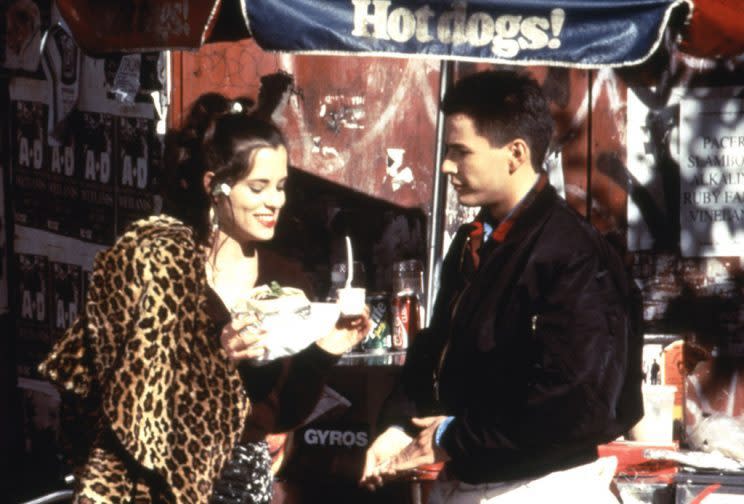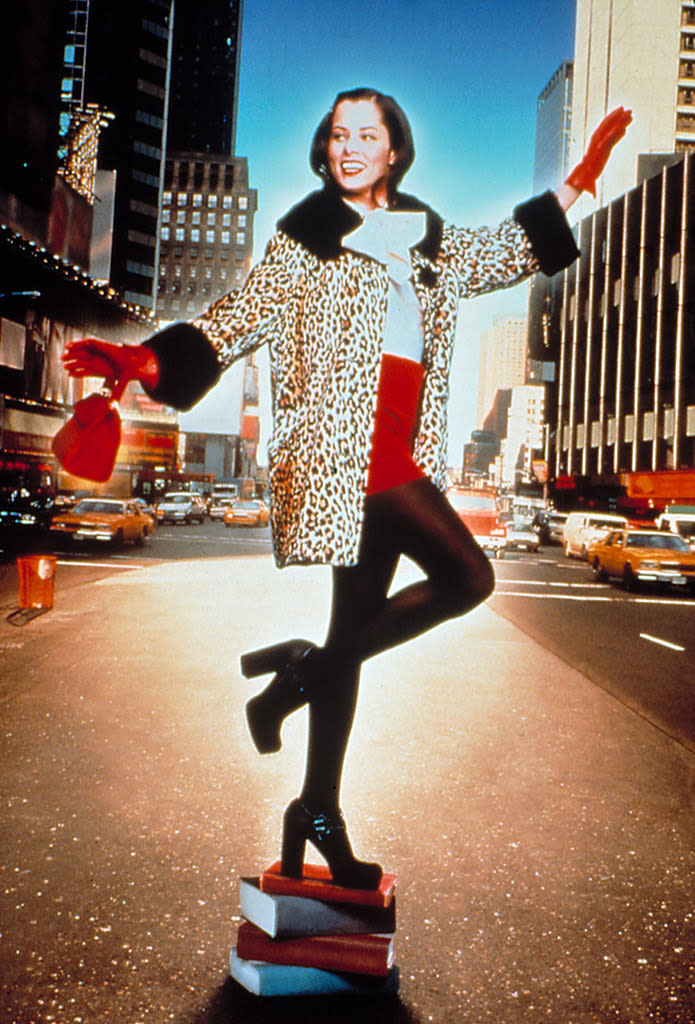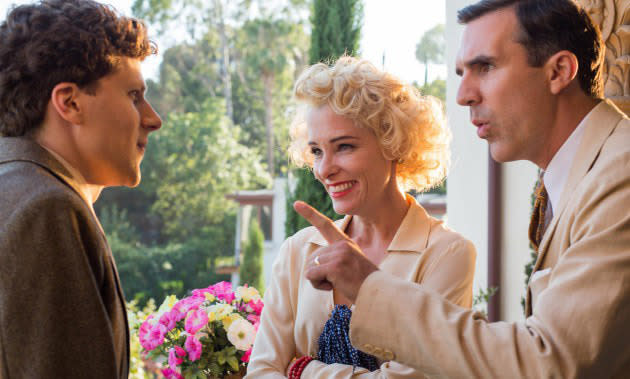Parker Posey on 'Cafe Society' and Still Getting Recognized for Her '90s Indie Classic 'Party Girl'

It’s been 21 years since Parker Posey danced the New York night away as the eponymous heroine of Daisy von Scherler Meyer’s 1995 favorite, Party Girl. But as the actress told Yahoo Movies recently, she knows that it’s a film — and a character — she’ll always be synonymous with, even as it matures from drinking age to retirement age in the decades ahead. Asked how often she’s approached by eager fans still in thrall of Party Girl’s Mary and her pre-Boho Soho lifestyle, Posey just sighs: “It’s like, every day. For a long time, people thought I was that character. At a certain point, I wanted to say, ‘I can also do other things!’”
Watch the ‘Party Girl’ trailer:
Posey does acknowledge that, early on, she played a role in burnishing her Party Girl persona. When the film premiered at the 1995 Sundance Film Festival, she originated a rumor that she had landed the role after the director spotted her working at the make-up counter at Barney’s. “That followed me,” she says, laughing. For her younger self, though, inventing that story was all part of the “screwball spirit” that defined Party Girl. “I watched a lot of Carole Lombard movies to tap into that; I love those movies. I wanted to be in one of those movies.”

Although she couldn’t have known this at the time, Party Girl preserves for future generations a wilder, woolier version of New York that, these days, seems almost like ancient history. Shot in 1994, the movie captures a downtown Manhattan that has yet to go through its high-end makeover. “I remember marching down Lafayette Street in all of Mary’s different outfits,” Posey says. “The wardrobe designer would borrow rhinestone shorts from [fashion designer] Todd Oldham, and return them the next day. We’d be out all hours dancing and voguing in the clubs. There was a jargon and attitude to New York [back then] that was so liberating and funny and expressive.” Even the experience of making the movie represents a model of indie filmmaking that defined the ‘90s, and has largely gone away with the advent of digital cameras. “We shot Party Girl on film, and I remember being told ‘We need to get this in two takes, because we don’t have a lot of film in the mag right now!’”

Posey’s small, but memorable role in Woody Allen’s newest film, Café Society, allows her to spend time in another vanished version of New York, one that she definitely wasn’t present for the first time around. Rewinding the clock all the way back to the ‘30s, the drama, which is now playing in limited release, follows the career of ambitious Manhattanite, Bobby Dorfman (Jesse Eisenberg), who explores career opportunities — and romantic possibilities with a winsome secretary (Kristen Stewart) — in sunny Los Angeles, before returning east to run a popular nightclub. Posey and Paul Schneider play bicoastal married socialites, Rad and Steve Taylor, who help lift the young man into the upper rungs of New York society and introduce him to his glamorous new love interest (Blake Lively).
Related: Kristen Stewart on Woody Allen, ‘Twilight,’ and Those Boos at Cannes
Although Café Society fastidiously re-creates the atmosphere of Manhattan in the 1930s, it doesn’t have the rosy nostalgic glow of some of the director’s other period pieces, including Radio Days and Bullets Over Broadway. Instead, there’s a palpable sense that this world, and all its accompanying glamor, is fleeting. And even as Bobby attains the wealth and status he covets, a pronounced melancholy underlines his existence as he contemplates the girl that got away.
As Posey describes it, making Café Society was far from a melancholic experience, although it didn’t get off to the smoothest start. “I was shooting my first scene on my first day of work, and I thought it was going so well,” she remembers. “Until they turned the camera around [to do reverse shots] after lunch, and I did 20 takes! I thought I was going to get fired. It’s not like Woody hasn’t re-shot movies with other actors before!”
Watch the ‘Cafe Society’ trailer:
She’s got a point: Allen has regularly replaced cast members during and after production. A week into filming 1985’s The Purple Rose of Cairo, for example, the director swapped out Michael Keaton for Jeff Daniels, and in the case of his 1987 drama, September, he re-shot the entire film with a new cast. Even Café Society wasn’t immune to casting changes; Steve Carell replaced Bruce Willis as Bobby’s uncle, Phil Stern, early on in production. Fortunately, Posey avoided a similar fate. “Once I got through those 20 takes, I was onto the next scene,” she says. “It was great to be in the hands of a great director who knows what he’s doing and you can trust everything he’s saying. His energy and experience makes everyone working on the film better.”

